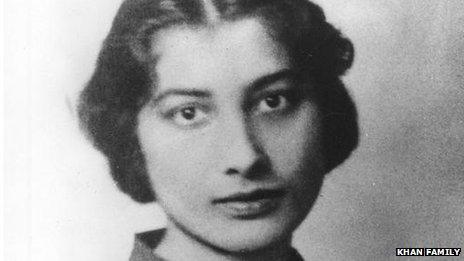Hidden histories of British Muslim women revealed
- Published
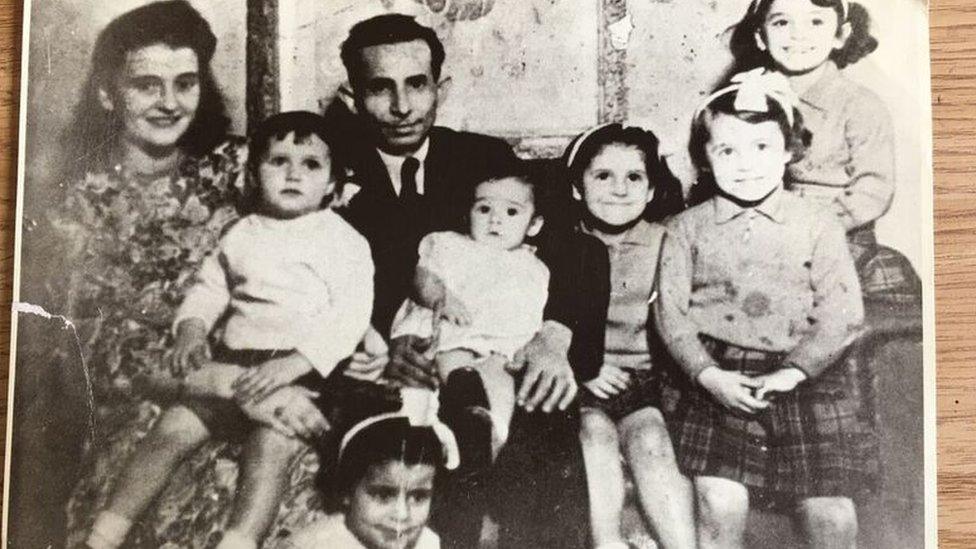
The life of Olive Salaman and her family is highlighted in the book
A collection of remarkable and often hidden stories of Muslim women who helped shape the history of Britain have been revealed and documented in a new book.
It covers the lives of women, from an aristocrat to a cafe owner and World War Two spy, and reinstates them as "actors, storytellers and story makers," the authors said.
"Muslim women were key contributors not just to British Muslim history but to all of British history," said sociologist Prof Sariya Cheruvallil-Contractor, of Coventry University.
"If we are to understand who we are as a society we have got to understand all of our contributions," she added.
She has worked with co-editor and historian Dr Jamie Gilham to curate stories from a range of contributors, often from "very scarce source material," she said.
"These women came from communities that experienced precarious and difficult challenges - racism, prejudice towards their marriages and children, wars, financial insecurity, patriarchy and the problematic citizenship status of their husbands," she explained.
"Preserving their records and life histories was perhaps the last thing on their minds."
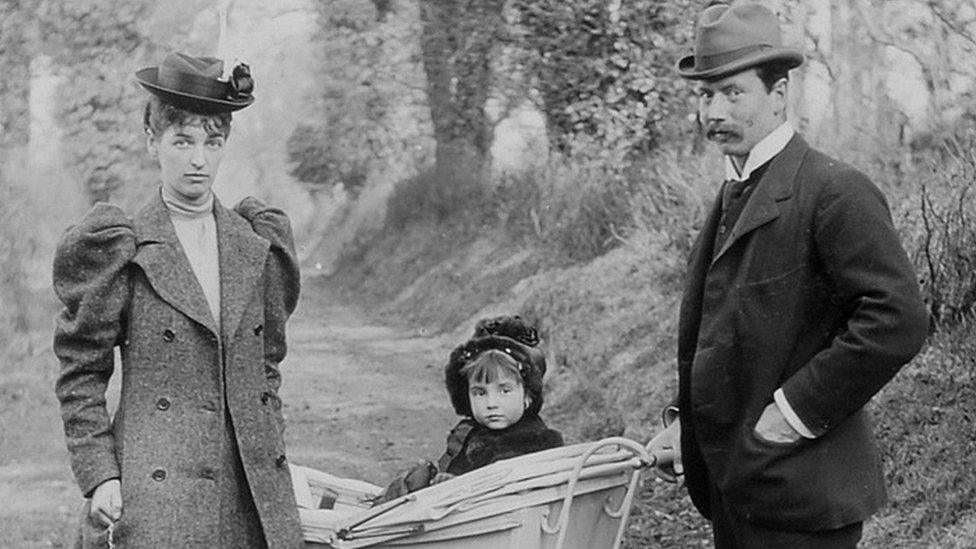
Lady Evelyn, pictured with her husband John Cobbold, is thought to be the first British-born Muslim woman to make the Hajj pilgrimage
The publication tells the stories of those who lived in Britain between the mid 19th and mid 20th Centuries, before immigration profoundly affected the size and composition of Britain's Muslim communities.
In the book, Muslim Women in Britain, Prof Cheruvallil-Contractor writes about the life of Olive Salaman, helping shed light on the contribution of working class women.
Olive was 15 years old when she moved from a small town in the Rhondda Valley to Cardiff to train as a nurse.
One afternoon, trying to find her way home after a cinema trip, she stopped to ask a young Yemeni sailor for directions.
"We started talking and I think we fell in love there and then," she told a BBC documentary in 1968.
The man she had asked directions of was Ali Salaman, a young chef working in his own cafe in the Tiger Bay area of the city.
After they married in 1937, she converted to Islam, lived through WW2, had 10 children of her own and fostered and adopted many more, becoming known as the "mother of the Cardiff Yemenis" and a legendary anchor of her community.
The couple ran the area's popular Cairo Cafe, which became a hub for community life.
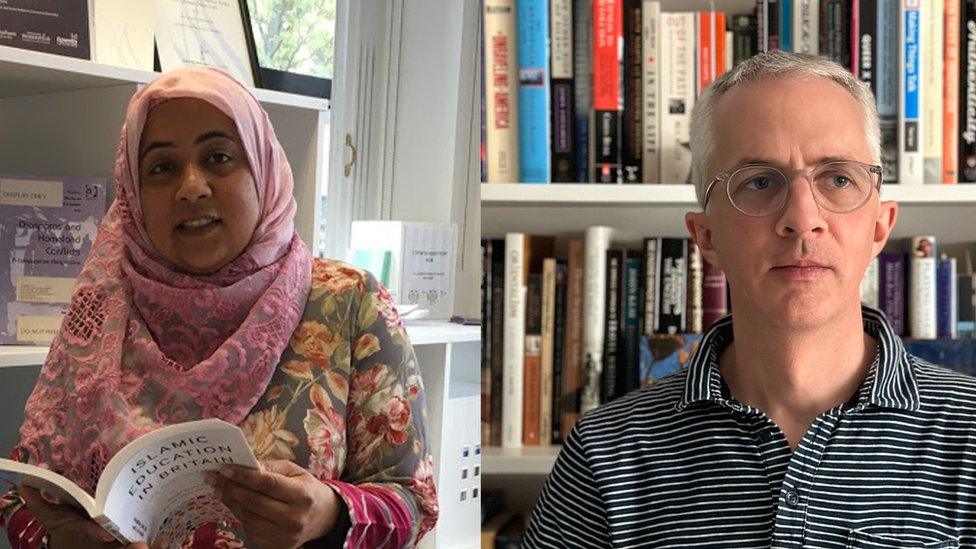
The authors have spent three years on the book highlighting British Muslim women
Her story was an "important one", said the academic, who had gathered information using the BBC interview and oral history recordings.
"Mixed ethnicity marriages were not commonplace, they were frowned upon significantly in those times."
Her social class had "added another layer of invisibility, further cloaking these women's lives," she added.
"It was amazing when I started digging into these histories, I found not only were they alive and kicking and really active in their communities."
Two of the first British mosques "had women at the very centre of their establishment," she said.
"The one in Woking was funded by a woman and one in Liverpool a woman, Lady Fatima Cates, was its founding treasurer."
One of the first known female converts to Islam in Britain, Cates's story was "often cited" in discussions about the early Liverpool Muslim community, "yet very little has been written about her life," said contributor Hamid Mahmood.
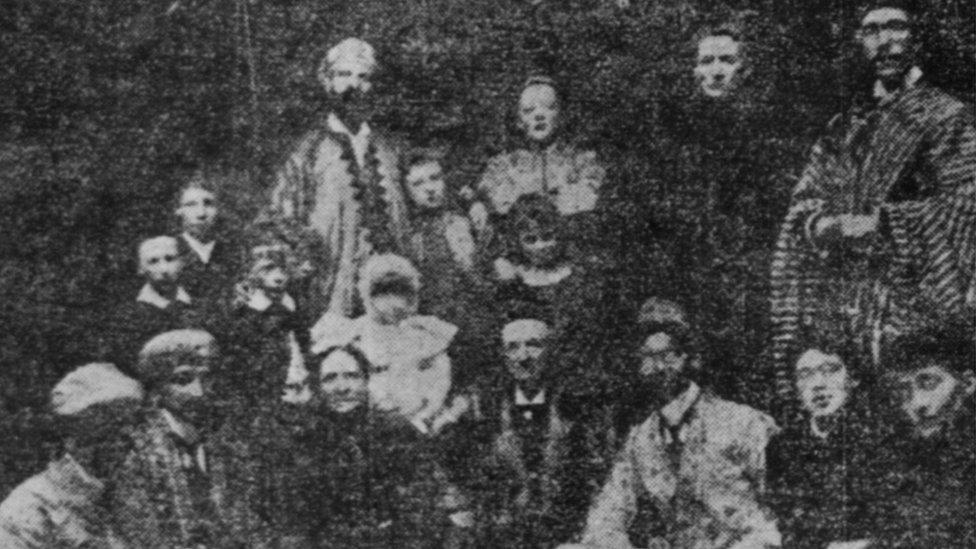
It is thought Fatima Cates appears in this photograph with Abdullah Quilliam and other Victorian Muslims
In the book he charts her life from a strict Christian household, her route to Islam at the the Abdullah Quilliam in Liverpool via the Temperance Movement, until her death in 1900.
Her grave in the city's Anfield Cemetery lay unmarked until Mr Mahmood, who founded a madrassah school named after her in London, revealed it.
"Fatima's life and struggle against persecution, violence and Islamophobia more than a century ago is now being rediscovered by British Muslims," he writes.
In 2022, a stone was finally placed on her unmarked grave, commemorating her life and significance.
"It's much harder to find resources about women and it was important to get their stories out," explained Prof Cheruvallil-Contractor.
"But if women were from the middle or upper middle classes there tended to be archival sources - their families hold material, their letters," she said.
"A case in point is Lady Evelyn Cobbold - her mother used to be lady in waiting to the Queen.
"We know a lot about her now, how she converts to Islam, a few years later performs the Hajj [pilgrimage to Mecca], writes a book about it. Now we know a lot about her but 15 years ago we knew nothing.
"Her family still has two big boxes full of letters, but a women like Olive Salaman - her family had existential crises, they didn't know on occasion where their next meal was going to come from, and so archives were the last thing on their mind."
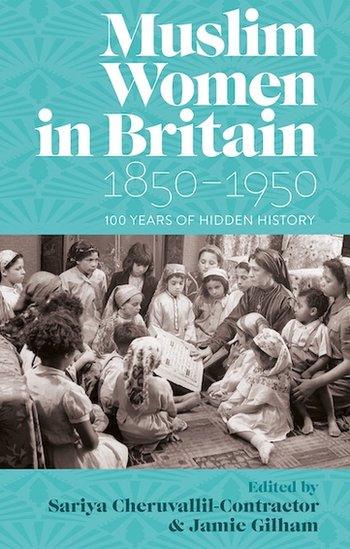
The book's authors set out to reveal the hidden stories behind Islam
Dr Gilham, who has been researching the history of Islam for more than 20 years, tells the story of quite a different aristocratic Englishwoman Gladys Milton Brooke.
Her unusual religious conversion ceremony - in 1932 above the English Channel on a flight between London and Paris - made headlines around the world.
She subsequently explained why she had become a Muslim in the press and on public radio and wrote articles about her faith for Islamic journals, using her celebrity to challenge traditional Western views about Islam.
The life of one of the most famous Muslim women, writer and spy Noor Inayat Khan, has previously been well-documented, the authors said.
Khan was a wartime British secret agent of Indian descent who was the first female radio operator sent into Nazi-occupied France by the Special Operations Executive (SOE).
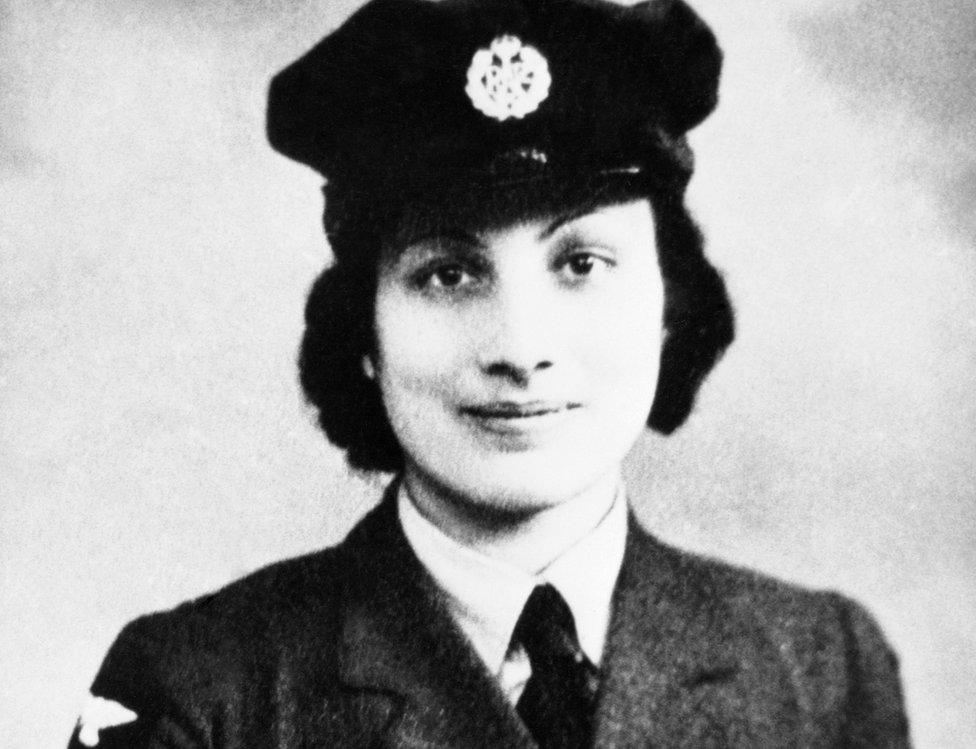
Noor Inayat Khan was a British spy sent in to help the French Resistance
She was arrested and eventually executed at the Dachau concentration camp in 1944, and posthumously awarded the George Cross five years later.
The book had taken a fresh approach to her life with a chapter on her written by Noor's direct descendant, and drawing on family oral history, said the authors.
"We decided this wasn't the final word on the subject by any means, it's just introductions to springboard for further research," added Dr Gilham.
"Our hope is that it inspires more research using archival and, where possible, oral history methods to shed light both on those women who actively helped to build British Islam."
Muslim Women in Britain, 100 Years of Hidden History is published by Hurst.

Follow BBC West Midlands on Facebook, external, Twitter, external and Instagram, external. Send your story ideas to: newsonline.westmidlands@bbc.co.uk
- Published20 June 2018
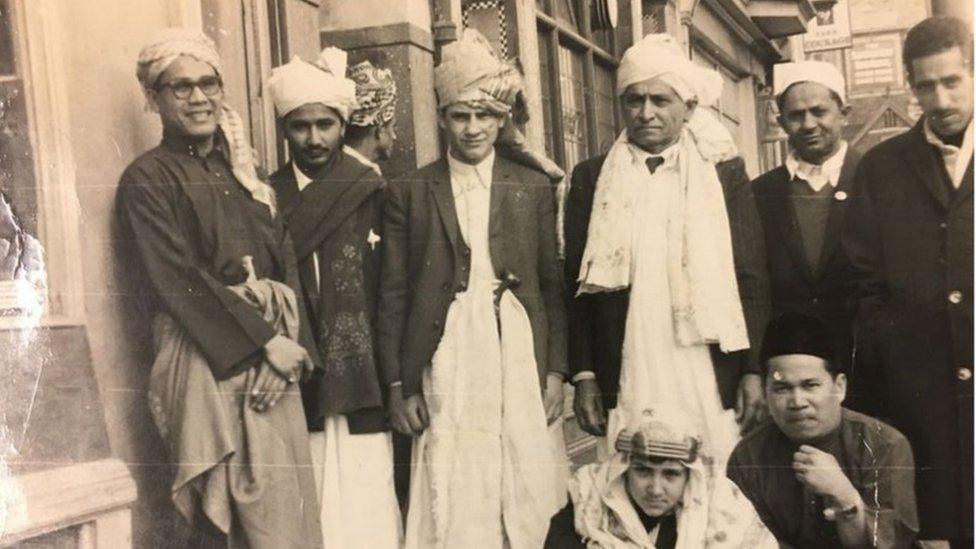
- Published19 May 2019
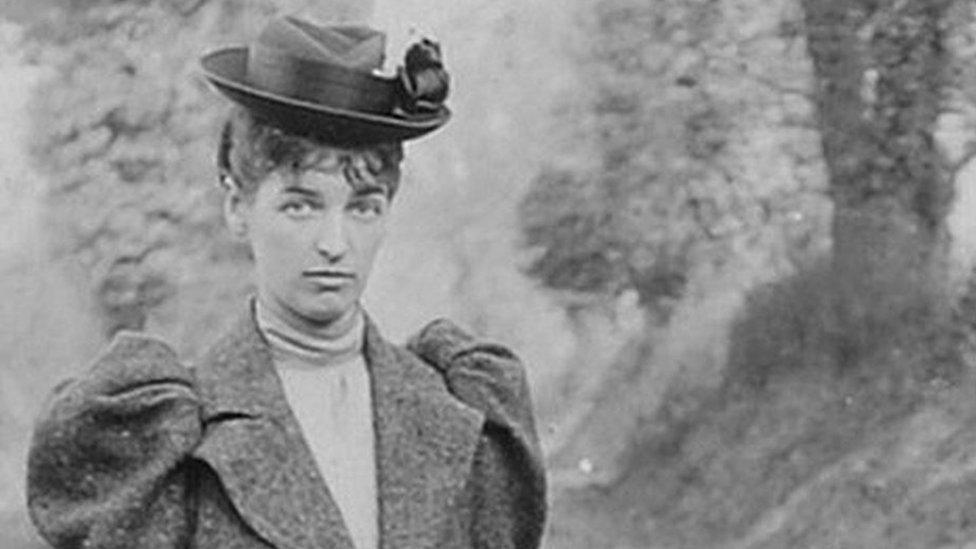
- Published20 November 2022
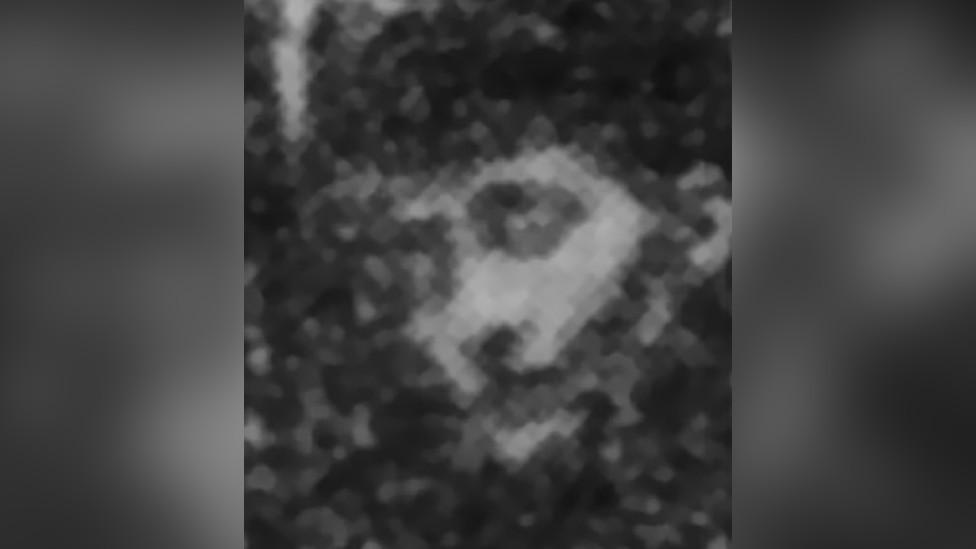
- Published8 November 2012
